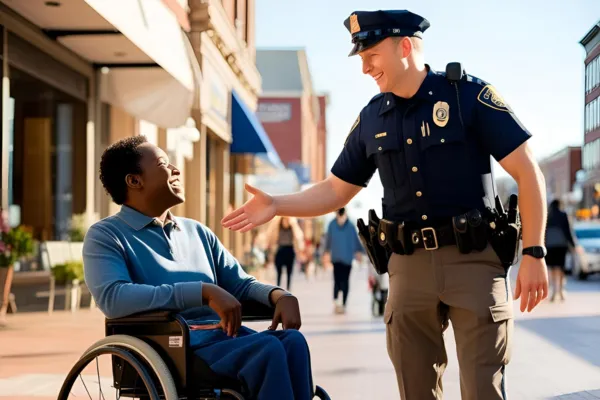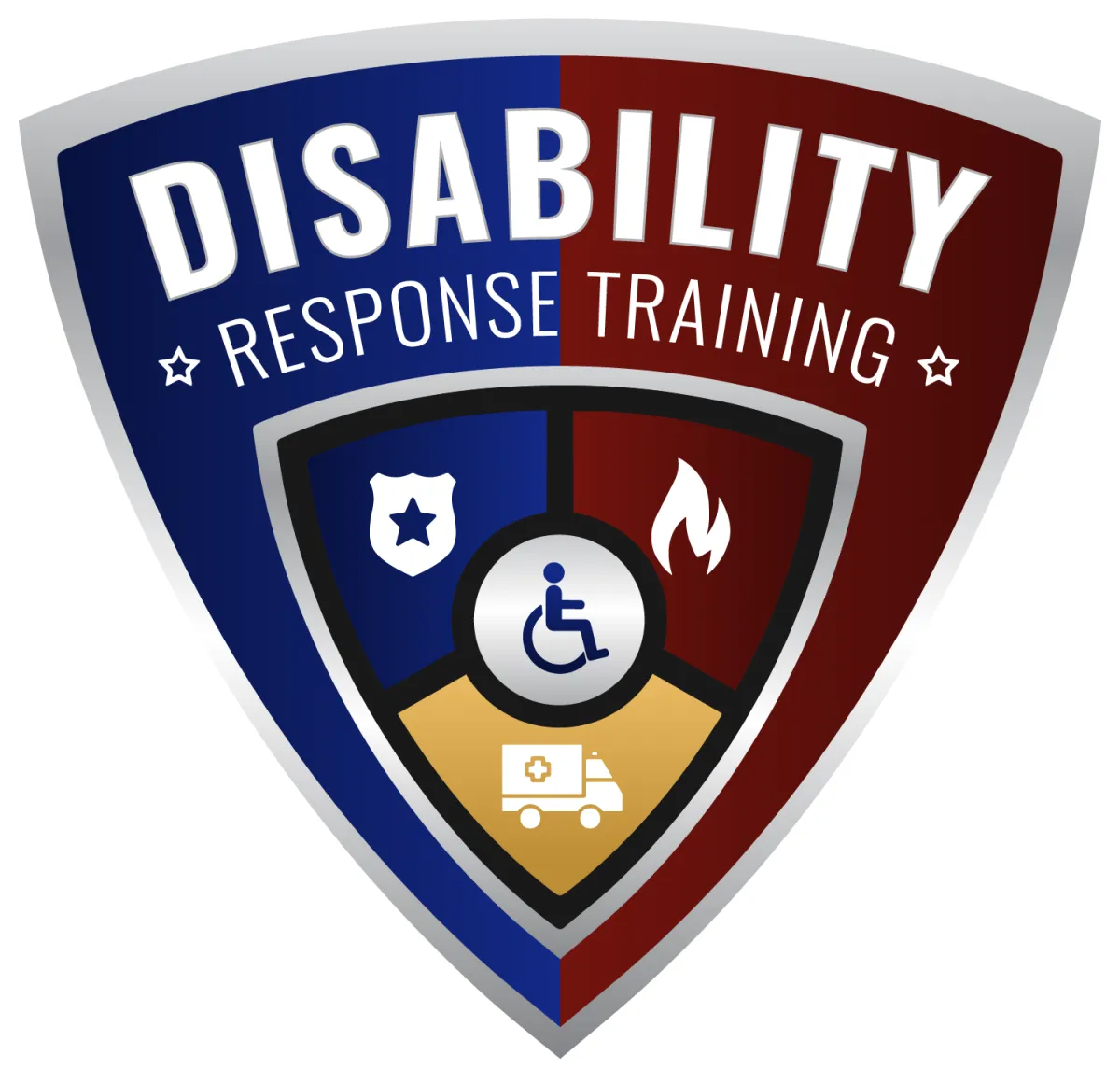See Our Latest Blogs

Comprehensive Training Empowers Law Enforcement to Successfully Interact with Physically Disabled Suspects
In today’s law enforcement environment, one of the most important—and often overlooked—areas of officer training is understanding how to appropriately and effectively engage with individuals who have physical disabilities. These interactions can be complex, and without the right preparation, they may lead to misunderstandings, escalated tensions, or even unintended harm.
At DisabilityResponseTraining.com, our mission is to fill this critical gap by offering comprehensive training programs that empower law enforcement to successfully interact with physically disabled suspects. Our courses promote safer encounters, greater empathy, and stronger community trust.
Why Disability-Specific Training Matters
People with physical disabilities may experience mobility challenges, involuntary movements, or communication barriers that are unfamiliar to many officers. Without proper training, these differences can be misread as noncompliance or even aggression.
Some examples include:
A person with Parkinson’s disease may have tremors or a delayed response that could be mistaken for intoxication.
Someone using a wheelchair might not be able to comply with commands to “stand” or “lie down.”
Individuals with spinal cord injuries may have limited use of limbs or struggle to communicate clearly under stress.
These scenarios demonstrate the real-world need for comprehensive, scenario-based training that prepares law enforcement to interpret behaviors appropriately, de-escalate safely, and maintain respect in every interaction.
What Our Training Programs Offer
At Disability Response Training, we go beyond traditional classroom instruction. Our courses are built around practical, interactive modules that reflect real encounters officers face on duty.
1. Disability Awareness and Education
Officers gain foundational knowledge about a wide range of physical disabilities. This includes understanding how various conditions affect body language, speech patterns, response time, and the ability to follow commands.
2. Communication Strategies That Work
Not everyone can respond verbally. Officers are trained to use alternative communication techniques, including visual cues, written messages, and adaptive devices. These skills are vital during high-stress situations where clarity and calm can make all the difference.
3. Recognizing Non-Threatening Behavior
We emphasize training that helps officers distinguish between threatening actions and disability-related behaviors—minimizing misinterpretations and unnecessary use of force.
4. Scenario-Based De-escalation
Each course includes real-life simulations and scenario training that challenge officers to apply their skills in unpredictable situations. These experiences help build muscle memory, emotional regulation, and confidence in the field.
5. Legal and Ethical Considerations
Our programs cover key components of ADA compliance, departmental policy, and use-of-force law. Officers learn how to uphold both the law and the rights of individuals with disabilities.
The Outcomes Speak for Themselves
Law enforcement agencies that invest in comprehensive training empowering officers to interact successfully with physically disabled suspects report consistent benefits, including:
Reduced use-of-force incidents
Lower risk of legal liability
Improved officer morale and decision-making
Stronger public confidence in policing practices
These outcomes don’t just protect departments—they save lives.
Case Study: One Stop, Two Outcomes
Imagine two officers pulling over a vehicle for a minor violation. The driver has multiple sclerosis and moves slowly, struggling to retrieve their ID.
Officer A, without training, grows impatient and interprets the slow movements as suspicious, possibly aggressive. The stop escalates.
Officer B, who completed Disability Response Training, recognizes the signs of a mobility disorder and adjusts their communication accordingly. The stop ends respectfully, without incident.
This example illustrates how preparation can mean the difference between crisis and resolution.
Supporting a Culture of Equity and Accountability
Modern law enforcement must reflect the diversity and needs of the communities it serves. Training programs like ours help agencies prioritize equity and professionalism while improving transparency and inclusivity.
Disability Response Training promotes a culture where officers feel supported, well-equipped, and accountable—not just to department standards, but to the individuals they protect every day.
Flexible Delivery, Long-Term Impact
We offer multiple training formats to meet the needs of departments of all sizes:
On-site workshops
Virtual learning sessions
Train-the-trainer certification
Annual refresher programs and recertification
Our instructors include law enforcement professionals, legal experts, and advocates with direct experience in disability rights and community engagement.
Learn more about our mission and training philosophy.
Take the Next Step: Equip Your Team
If your department is ready to take proactive steps toward inclusive policing, now is the time to act. Our programs are designed to create lasting change—not just check a compliance box.
✅ Learn more at DisabilityResponseTraining.com
📧 Email: [email protected]
📞 Contact us today to schedule a consultation or book a training session.
Empower your officers. Serve your community. Reduce liability. Start training today.
Conclusion: Building Bridges Through Training
Disability awareness isn’t just a courtesy—it’s a necessity in modern policing. Through comprehensive training empowering law enforcement to successfully interact with physically disabled suspects, departments can reduce risk, increase safety, and foster public trust.
At Disability Response Training, we believe that respect, knowledge, and preparation are the cornerstones of effective community service. And it all starts with education.
Empowering Law Enforcement to Successfully Interact with Physically Disabled Suspects
Essential training to prepare your officers for any situation involving a physically disabled person—boosting individual safety and reinforcing public trust.
Contact:
© 2025 Disability Response Training
All Rights Reserved - Privacy Policy

